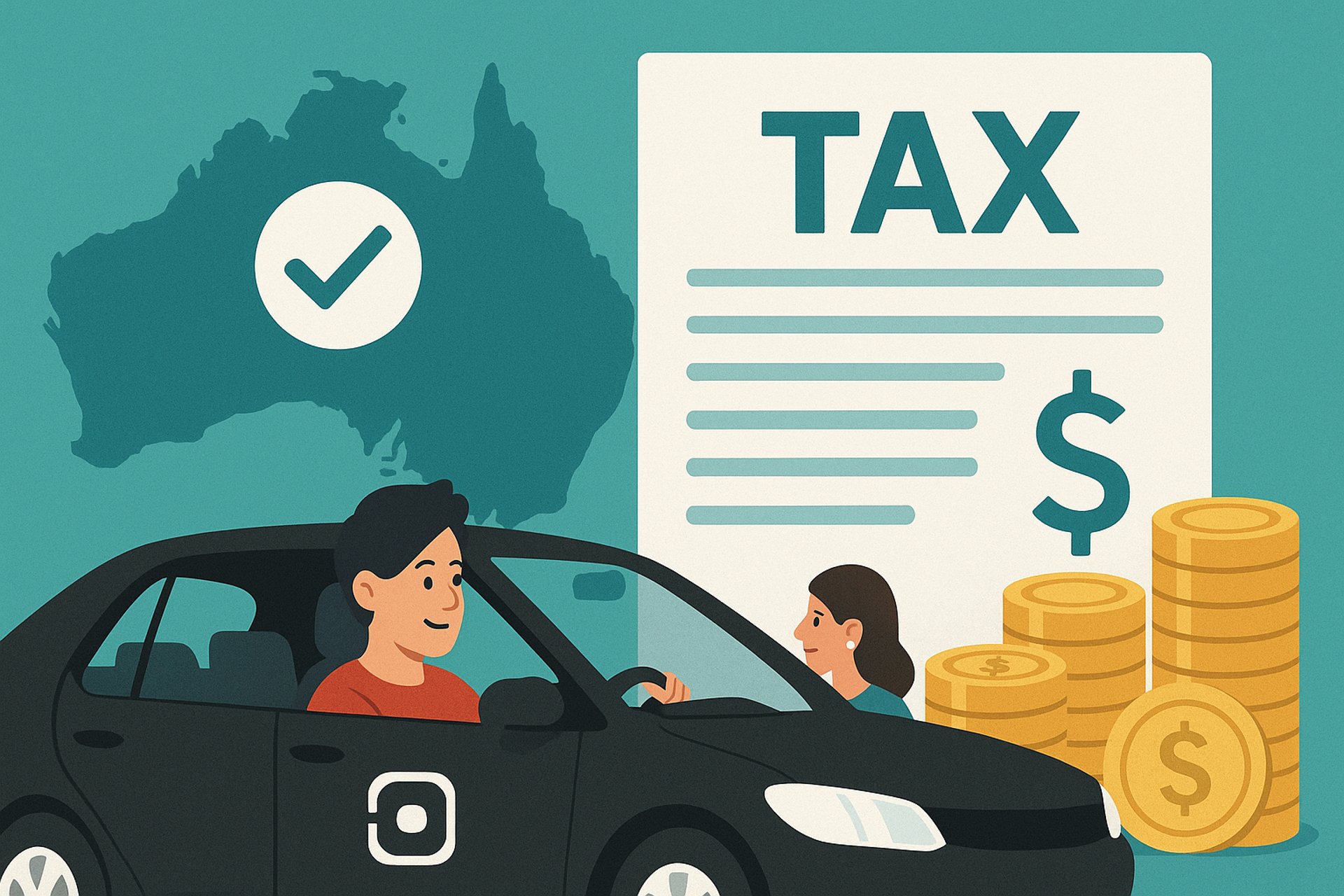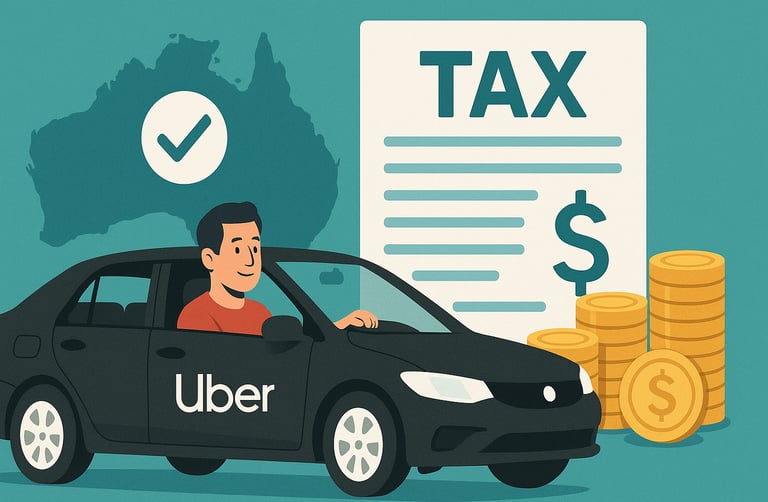
Maximizing Your Uber Earnings: The Ultimate Guide to Navigating Tax in Australia

Discover how Uber drivers in Australia can navigate tax obligations, maximize deductions, and avoid ATO penalties. This guide covers GST registration, essential record-keeping, and superannuation tips, helping you keep more of your hard-earned money. Drive smart and tax smart with these essential insights for ride-share earners.
Uber Income: More Than Just a Side Hustle
For many, Uber driving starts as a side gig, but it can quickly become a significant source of income. The ATO (Australian Taxation Office) treats Uber drivers as sole traders, meaning you’re running your own small business. This has important tax implications. Every dollar you earn from Uber is considered assessable income and must be declared on your tax return, regardless of whether you drive full-time or just a few hours a week.
GST: The Game Changer
One of the biggest surprises for new Uber drivers is the requirement to register for Goods and Services Tax (GST) from your very first dollar earned. Unlike most small businesses, which only need to register for GST once they hit $75,000 in turnover, ride-sharing drivers must register immediately. This means you’ll need to charge GST on your fares (Uber does this automatically), lodge Business Activity Statements (BAS) quarterly, and pay 10% GST on your gross fares to the ATO. A 2025 study by Rideshare Drivers Association of Australia found that nearly 40% of new drivers were unaware of the GST requirement, leading to unexpected tax bills and penalties. Staying on top of your GST obligations is essential to avoid nasty surprises.
Deductions: Your Secret Weapon
The good news? As a sole trader, you can claim a range of deductions to reduce your taxable income. These include fuel, car maintenance, insurance, cleaning, mobile phone costs, and even a portion of your car’s depreciation. The ATO allows you to use either the cents-per-kilometre method or the logbook method to calculate your car expenses. Keeping detailed records is key—apps like Uber’s own driver portal or third-party tools like QuickBooks Self-Employed can make this much easier. According to a 2023 survey by Finder, savvy Uber drivers who claimed all eligible deductions saved an average of $2,500 per year on their tax bill. That’s money back in your pocket!
Superannuation: Don’t Forget Your Future
Unlike traditional employees, Uber drivers don’t receive compulsory superannuation contributions. It’s up to you to set aside money for your retirement. The ATO recommends making regular voluntary contributions to your super fund. Not only does this secure your financial future, but you may also be eligible for government co-contributions or tax deductions.
ATO Crackdown: Don’t Risk It
The ATO has ramped up data-matching efforts with ride-sharing platforms, making it easier than ever to identify undeclared income. In 2025, the ATO issued over 10,000 warning letters to ride-share drivers who failed to declare their earnings. The message is clear: transparency is non-negotiable.
Final Thoughts: Drive Smart, Tax Smart
Driving for Uber in Australia can be a lucrative and flexible way to earn income, but it comes with tax responsibilities that shouldn’t be ignored. Register for GST, keep meticulous records, claim all eligible deductions, and don’t forget about your super. By staying informed and organized, you can maximize your Uber earnings and avoid tax-time headaches. Remember, when it comes to tax, knowledge is your best fare!
If you’re one of the thousands of Australians who have embraced the gig economy by driving for Uber, you’re not alone. According to a 2023 report by the Australian Bureau of Statistics, over 150,000 Australians earned income through ride-sharing platforms last year, with Uber leading the pack. While the flexibility and earning potential are attractive, many drivers find themselves puzzled when tax time rolls around. Understanding how your Uber income is taxed in Australia is crucial—not just for compliance, but for maximizing your take-home pay.

